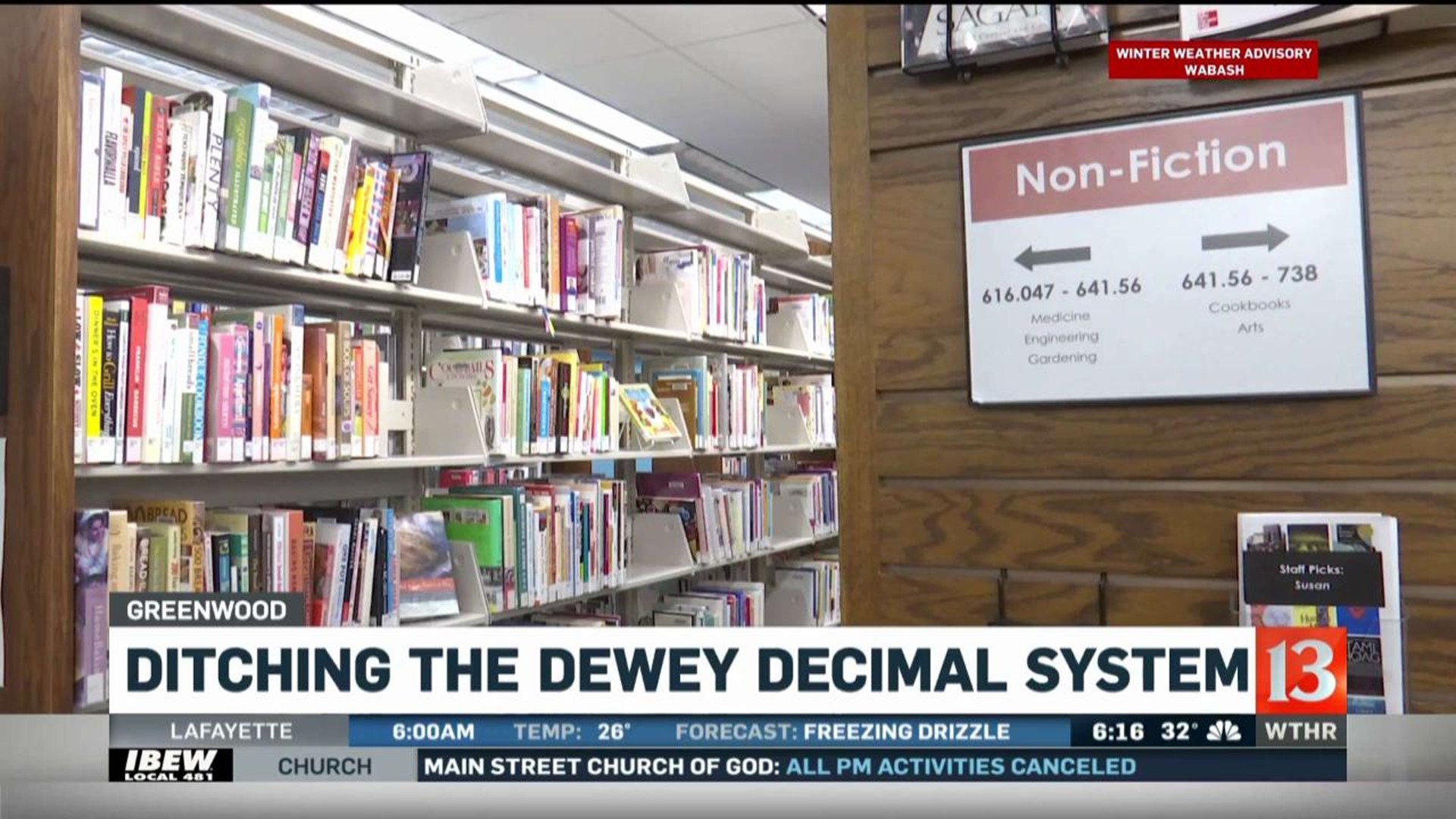GREENWOOD, Ind. (WTHR) - Unless you know sports book are listed at 796 in the Dewey Decimal System, and cookbooks are somewhere in the 641 range, you might get lost in the non-fiction section of your local library.
“People don't come in and go, 'I feel like an 811 today,’” said Emily Ellis, assistant director at the Greenwood Public Library. “No, they think, 'I want poetry.'"
The Greenwood Public Library is ditching Dewey for a shelf system librarians call Subject Savvy.
"People will be able to browse more easily because when they come in, they'll find all the books on one subject in one place, which with Dewey wasn't necessarily true,” said Cheryl Dobbs, Greenwood Public Library Executive Director.
Some 35,000 non-fiction books are being reorganized and relabeled by subject and sub-category. The process is just getting started and will likely take most of this year.
If you're looking for a book about horses, you go to the animals section, then find the farm animals subtopic, even a further subtopic of horses. You don't have to know anymore that “The Encyclopedia of the Horse” would be found at 636.1.
"They've always been able to ask us,” said Ellis. “They've always been able to look in the catalog system. But this speaks their language instead of the library language of Dewey, so we're really hoping that as they come in, they become more confident library users and find what they need."
Libraries have used the system developed by Melvin Dewey since 1876 to classify non-fiction books. The Greenwood librarians visited libraries in Kendallville and Wells County that have reorganized before coming up with their Subject Savvy system.
"We also like that it fits the way people think,” said Dobbs. “We say Subject Savvy thinks the way you do."
Non-fiction books are assigned to one of 31 subjects and labeled with sub-category and stacked alphabetically by author on the shelf. Animals is the first subject. Arts and Crafts books will soon fill the empty shelves to the right.
"We're doing everything we can to make our library part of their current life and part of their future,” said Dobbs. “As a result of changes like this, we're seeing book circulation increase."
No more looking up catalog numbers. Patrons just read the words, then read the book.

